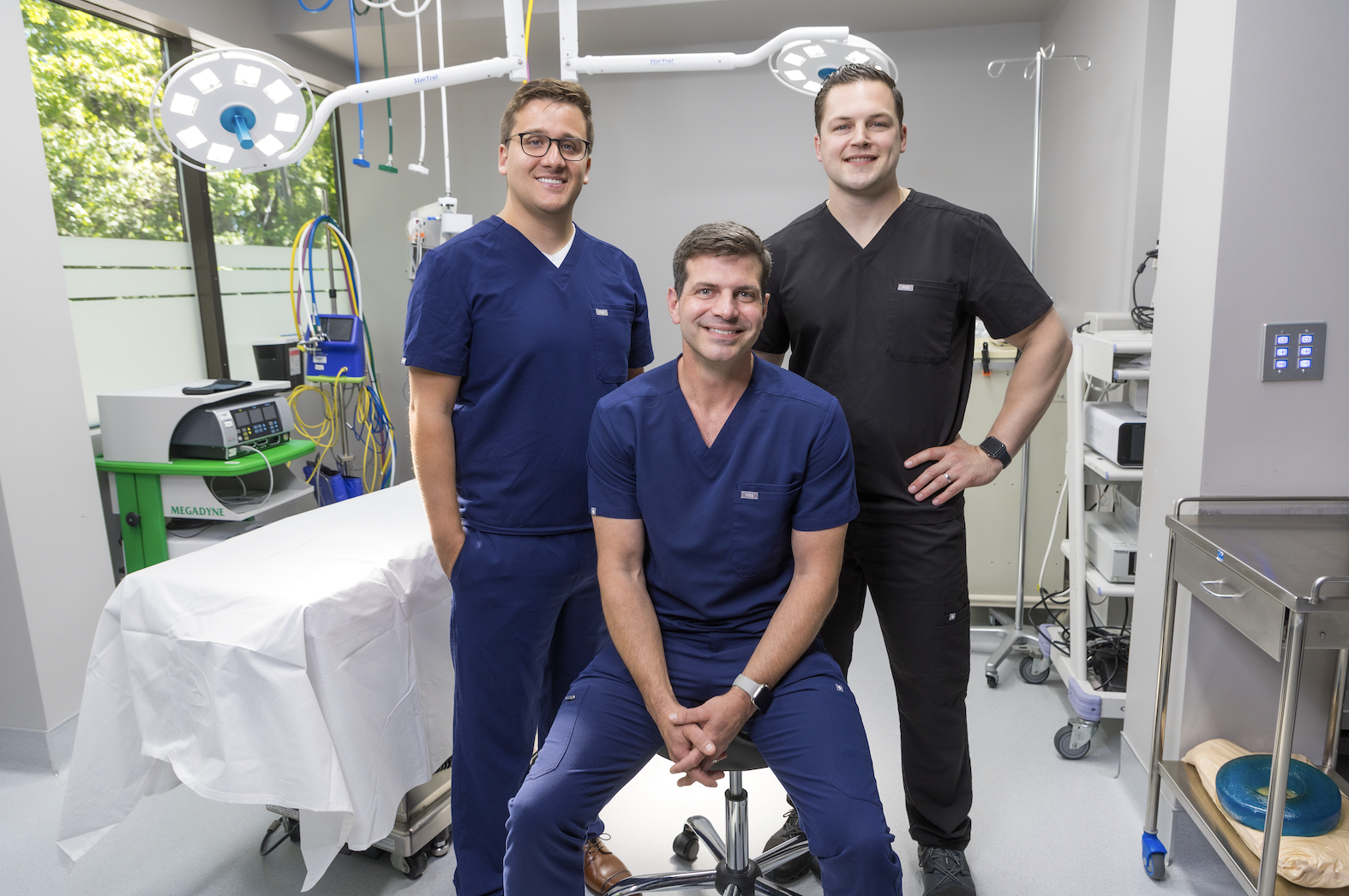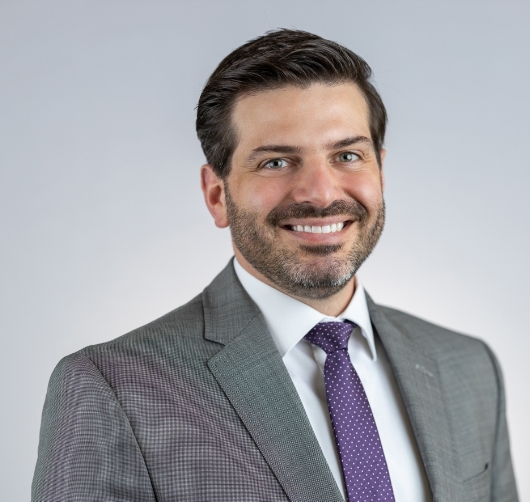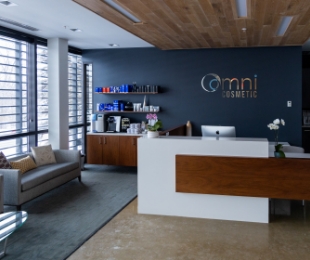 About Our Surgical Center
About Our Surgical Center
The entire staff at the Wayzata Surgical Center understands that surgery is very familiar to us because we perform surgery every day, but it’s unfamiliar to you. The idea of surgery can often cause anxiety for many of our patients! We exclusively specialize in outpatient plastic and cosmetic surgery. We have been planning for your arrival and we are looking forward to helping you have the best experience that we can provide. We love teaching and we tend to believe that information is powerful. Our most informed patients are often the ones who do the best, because they understand why we do what we need to do to provide a safe and predictable experience.
Some would say that we have obsessive-compulsive tendencies. We prefer to think of ourselves as high control. It sounds better. Doesn’t it? We debated for years whether it would be practical or prudent to add our own surgical center. It would be a big commitment and a big lift from an expense standpoint. We have a tendency to say, “If we can’t do it right, we won’t do it” and equally importantly “if we can’t do it safely, we can’t do it at all.” We spent several years researching and developing a plan for success and worked with ESG an architect firm that had experience building surgical centers, a builder who had the right subcontractors to guide our building plan, the Minnesota Department of Health and a national surgical center organization to come up with a building plan for our very own surgical center. We wanted to have better control of the patient experience and we did not want to be in a hospital where all of the sickest patients come for care. We planned for safety with careful consideration for the consistency of the patient experience. In 2016, Wayzata Surgical Center became a reality as we realized our goal of having our own ambulatory surgical center (ASC) on-site. We would have more opportunities for optimizing the way for us to control so many of the variables related to outpatient surgery. Ambulatory surgery basically means the that patients ambulate or walk-in and walk-out. Since our launch in 2016 we have been licensed by the Minnesota Department of Health and credentialled by the American Association for Accreditation of Ambulatory Surgical Facilities (AAAASF) or Quad A. We undergo regular and rigorous screening and on-site visits. We are required to submit random cases for reviews every 6 months.
We know that by having the same anesthesia team, licensed nurses and surgical technicians, we can offer our surgeons a more consistent experience in a life event that can often produce a bit of anxiety. Surgery is not scary for us because it is something we do every day, but for most of our patients, they are not familiar with the experience of surgery. We have strict protocols and we love being in control of so many of the variable surrounding the surgical experience. We have an awesome team and we all enjoy working together. We’ve often said that we could probably do all of the surgery without talking, because every member of the team knows what is going to happen next in the sequence. This is often not the case at a hospital where the surgeon will likely have a different nurse, surgical tech, or anesthesia provider every single day. It doesn’t usually result in consistency and it can add to stress for the team when the players don’t often know each other. This isn’t a criticism of other surgical centers because every surgical center has its own culture, licensure, safety responsibilities and its own priorities. We just happen to like ours the best.
To learn more about our surgical center and our approach to plastic surgery, schedule your consultation today.
Frequently Asked Questions
-
What kind of Anesthesia do you use in your outpatient ASC?
Our preferred technique is called a TIVA or Total IV Anesthesia. We prefer this technique because the patient is comfortably unconscious but still breathing on their own. We almost never need to paralyze our patients which is still a popular technique in some places. We are able to measure and monitor our patient’s oxygen saturation (O2 sat), heart rate or pulse, blood pressure, carbon dioxide (CO2), temperature and monitor their level of comfort. We have a continuous EKG that monitors heart rates and rhythms. We have every safety measure (as required) and protocols in place to improve safety. We practice safety every day.
-
What are the most common side effects of anesthesia?
Amnesia! We don’t allow our patients to go home without some capable adult with them, because some patients just don’t remember what we just told them. It is temporary consequence of anesthesia, but sometimes a nice consequence because people often forget the parts that cause anxiety. The TIVA technique results in a very low incidence of nausea or vomiting. If our patients have a tendency toward motion sickness with N or V we will often pre-treat with a modified “cocktail.” All of our patients have to be comfortable and feeling well before they leave the surgical center.
-
What happens if something goes wrong?
Every day we get out of bed there is a potential for something to go wrong. We often say that the patient’s biggest risk is driving in their car. When you are in a car, you might feel safe because you are sitting behind the driver’s wheel. Nothing could be further from the truth due to drunk or impaired drivers, icy or wet road that contribute to poor conditions, or distracted drivers texting and driving at the same time (and sometimes drinking coffee too!). We have a safety plan in place if anything were to go wrong. Our main plan is prevention. There are just some patients that are not candidates for outpatient surgery. We sometimes have to just say, “no” to elective surgery if patients have pre-existing health conditions that would make surgery unsafe. We have transfer agreements for weird medical things like a new heart problem or if someone became unstable during or after surgery. All of our surgeons have hospital admitting privileges at local hospitals like Abbott-Northwestern, Maple Grove Hospital or North Memorial Hospital.
-
Can I stay overnight after surgery?
We are working on a plan for overnight stay options. However, most of our out-of-town guest will stay at a local hotel near the surgical center with a trusted friend or family member. Some of our patients take advantage of a nearby overnight facility called Interlude Suites in Plymouth, Minnesota (www.interluderestorativesuites.org). They have affordable 24 hours nursing care that helps to reduce the stress for many of our patients. Some patients will stay for 1 or 2 nights depending on their individual preferences or needs. We also have several hotels nearby that have had great reviews from our patients. See the list.



